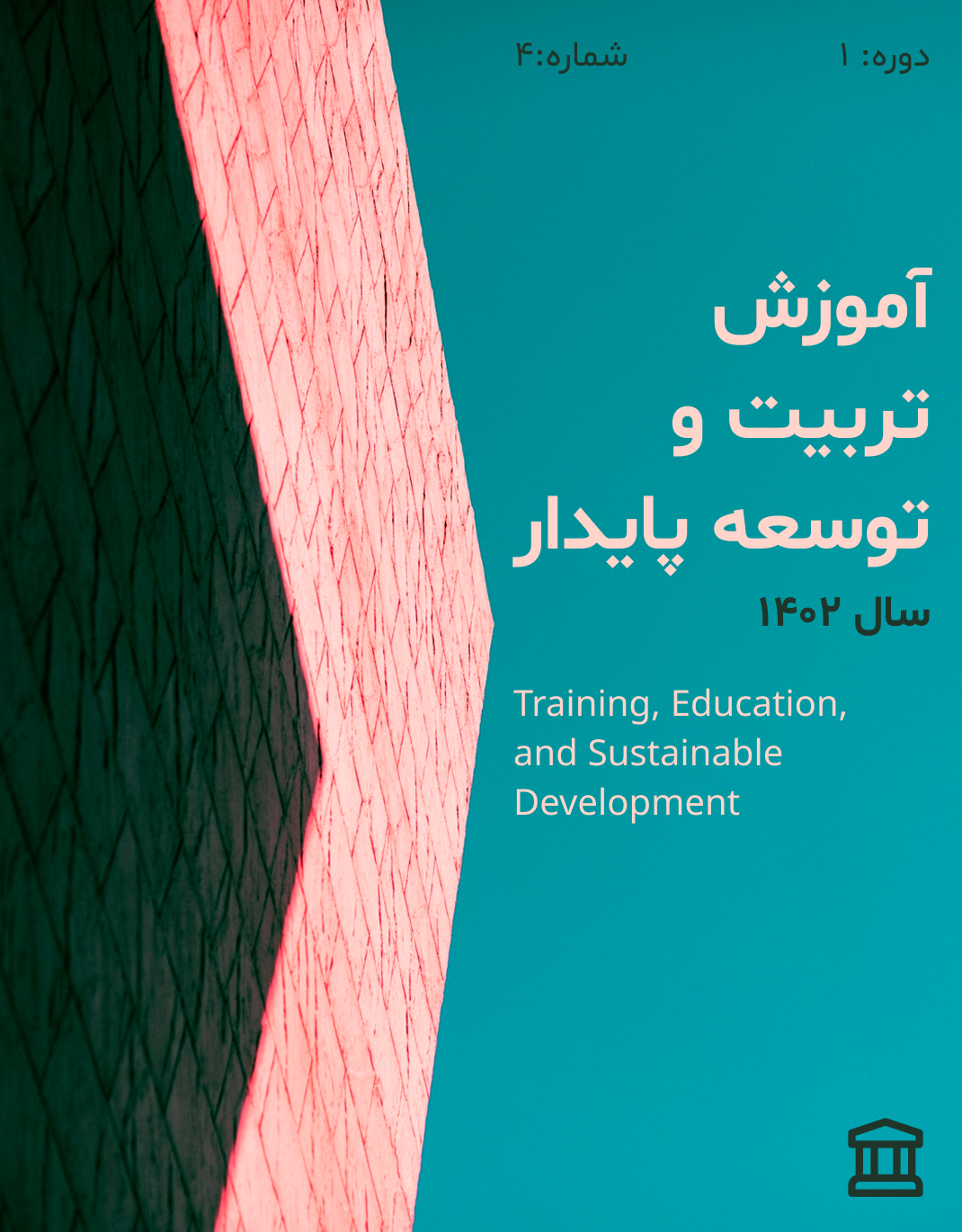Designing a Conceptual Model of Factors Influencing Sustainable Citizenship Education in Formal Schooling
Keywords:
Sustainable citizenship education, formal education, curriculum, education for sustainability, thematic analysis, Iranian education systemAbstract
The aim of this study was to design a conceptual model of factors influencing sustainable citizenship education in formal schooling, focusing on curriculum content, school role, and socio-cultural context. This research employed a qualitative design using thematic analysis. Data were collected through semi-structured interviews with 15 teachers, educational experts, and policymakers in Tehran, selected via purposive sampling until theoretical saturation was achieved. Interviews were transcribed and analyzed using NVivo software, resulting in the extraction of key themes and subthemes. The findings were categorized into three main themes: curriculum content, the role of teachers and schools, and socio-cultural infrastructures. Each theme contained several subthemes such as integration of sustainability concepts, cognitive skill development, teacher competencies, school culture, media influence, and supportive policymaking. The final conceptual model illustrated the interconnection between in-school and out-of-school factors in shaping sustainable citizenship. Educating sustainable citizens requires effective coordination among curriculum design, teacher empowerment, school culture, family involvement, and national educational policy. The proposed conceptual model serves as a framework for developing educational strategies, teacher training programs, and policy reforms aligned with sustainable development goals.
Downloads
References
Barr, S., Gilg, A., & Ford, N. (2005). The household energy gap: Examining the divide between habitual-and purchase-related conservation behaviours. Energy Policy, 33(11), 1425–1444.
Biesta, G. (2011). Learning democracy in school and society: Education, lifelong learning, and the politics of citizenship. Rotterdam: Sense Publishers.
Deakin Crick, R., Huang, S., Ahmed Shafi, A., & Goldspink, C. (2015). Developing resilient agency in learning: The internal structure of learning power. British Journal of Educational Studies, 63(2), 121–160.
Dobson, A. (2007). Environmental citizenship: Towards sustainable development. Sustainable Development, 15(5), 276–285.
Ferreira, J., Ryan, L., & Tilbury, D. (2007). Mainstreaming education for sustainable development in initial teacher education in Australia. Canberra: Australian Government Department of the Environment and Water Resources.
González-Gaudiano, E. (2005). Education for sustainable development: Configuration and meaning. Policy Futures in Education, 3(3), 243–250.
Huckle, J., & Wals, A. E. (2015). The UN Decade of Education for Sustainable Development: business as usual in the end. Environmental Education Research, 21(3), 491–505.
Lotz-Sisitka, H., Wals, A., Kronlid, D., & McGarry, D. (2015). Transformative, transgressive social learning: Rethinking higher education pedagogy in times of systemic global dysfunction. Current Opinion in Environmental Sustainability, 16, 73–80.
O’Brien, C., & Howard, P. (2016). The Living School: The emergence of a transformative sustainability education paradigm. Journal of Education for Sustainable Development, 10(1), 114–130.
Reid, A., Jensen, B. B., & Nikel, J. (2008). Participation and learning: Perspectives on education and the environment, health and sustainability. Springer Science & Business Media.
Safari, A. (2021). Challenges of integrating citizenship education in the Iranian curriculum. Iranian Journal of Curriculum Studies, 16(4), 59–78.
UNESCO. (2020). Education for Sustainable Development: A roadmap. Paris: UNESCO.
Downloads
Published
Submitted
Revised
Accepted
Issue
Section
License

This work is licensed under a Creative Commons Attribution-NonCommercial 4.0 International License.


